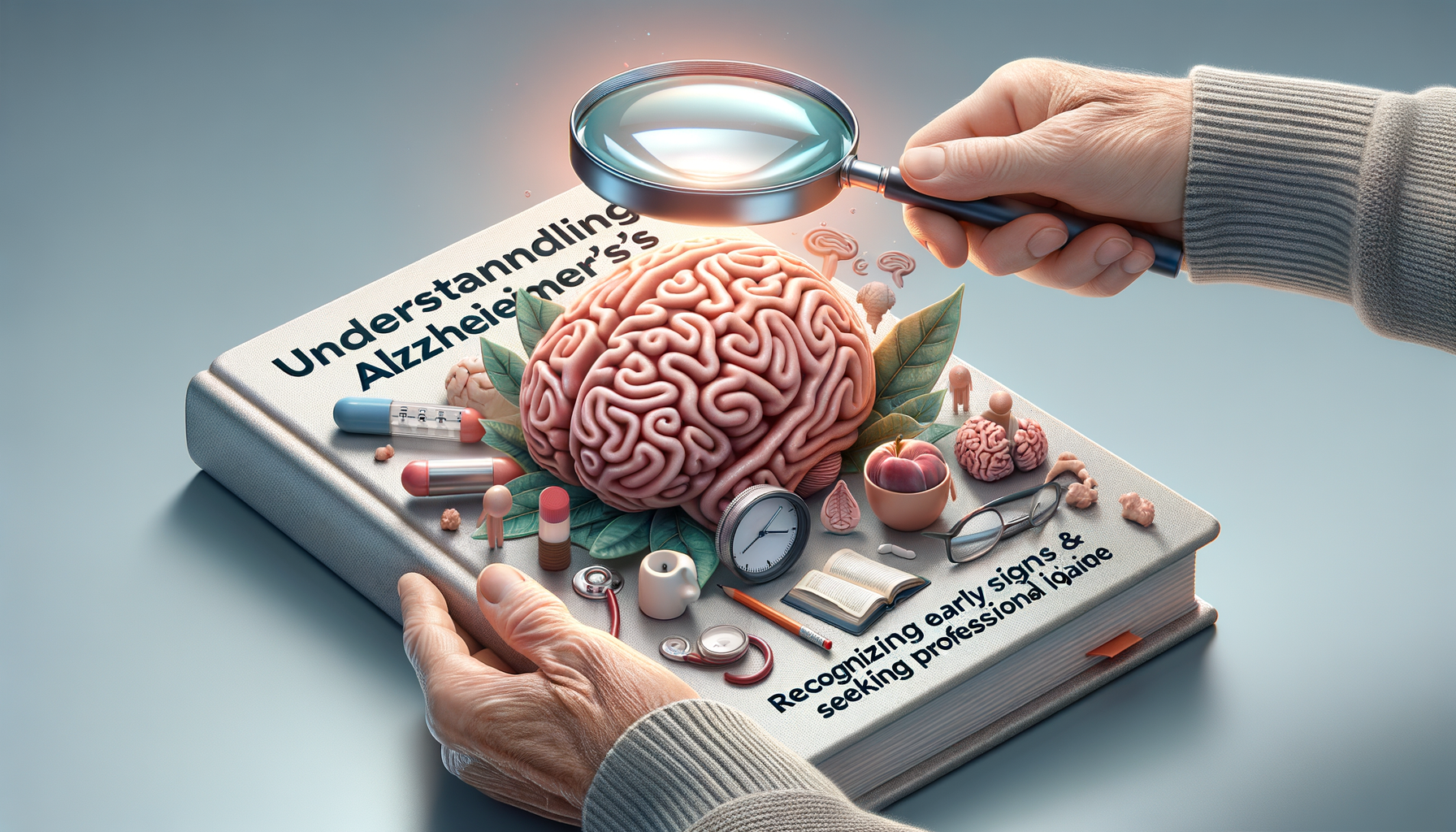Introduction to Alzheimer’s Disease
Alzheimer’s disease is a progressive neurological disorder that primarily affects memory, thinking, and behavior. It is the most common cause of dementia among older adults, accounting for an estimated 60-80% of cases. The disease is characterized by the gradual decline of cognitive function, impacting an individual’s ability to perform everyday activities. As the global population ages, the prevalence of Alzheimer’s is expected to rise, making it a significant public health concern.
Understanding Alzheimer’s is crucial for early detection and management. The disease not only affects the individual diagnosed but also poses challenges for caregivers and families. By recognizing early signs and seeking professional guidance, individuals can improve their quality of life and potentially slow the progression of symptoms. This article delves into the various aspects of Alzheimer’s, from its early signs to the importance of professional intervention.
Recognizing Early Signs of Alzheimer’s
Early detection of Alzheimer’s can make a significant difference in managing the disease. The initial signs can be subtle and are often mistaken for normal aging. However, there are specific symptoms that may indicate the onset of Alzheimer’s:
- Memory loss that disrupts daily life, such as forgetting recently learned information or important dates and events.
- Challenges in planning or solving problems, including difficulties in following a familiar recipe or keeping track of monthly bills.
- Difficulty completing familiar tasks at home, work, or leisure, such as driving to a known location or managing a budget.
- Confusion with time or place, such as losing track of dates, seasons, or the passage of time.
- New problems with words in speaking or writing, including trouble following or joining a conversation.
These early signs should not be ignored, as they can lead to more severe cognitive decline. Consulting a healthcare professional for a thorough evaluation is essential if these symptoms are observed.
The Role of Genetics and Lifestyle in Alzheimer’s
While the exact cause of Alzheimer’s is not fully understood, a combination of genetic, environmental, and lifestyle factors are believed to contribute to its development. Genetic factors, such as mutations in specific genes, can increase the risk of developing Alzheimer’s. The most well-known genetic risk factor is the presence of the APOE-e4 gene, which is associated with a higher likelihood of developing the disease.
In addition to genetics, lifestyle factors play a significant role in Alzheimer’s risk. Studies have shown that maintaining a healthy lifestyle can potentially reduce the risk or delay the onset of Alzheimer’s. Key lifestyle factors include:
- Regular physical activity, which promotes cardiovascular health and may reduce the risk of cognitive decline.
- A balanced diet rich in fruits, vegetables, whole grains, and lean proteins, which supports brain health.
- Engagement in mentally stimulating activities, such as reading, puzzles, and learning new skills, which can help maintain cognitive function.
- Social engagement, as maintaining strong social connections is linked to better brain health.
By understanding the interplay between genetics and lifestyle, individuals can take proactive steps to minimize their risk of Alzheimer’s.
The Importance of Professional Guidance
Seeking professional guidance is crucial for individuals experiencing symptoms of Alzheimer’s. A healthcare provider can conduct a comprehensive assessment to determine the presence of the disease and its severity. This assessment typically involves a combination of medical history, cognitive tests, neurological exams, and, if necessary, brain imaging.
Once diagnosed, a personalized care plan can be developed to address the individual’s specific needs. This plan may include medication to manage symptoms, as well as lifestyle recommendations to support overall health. Professional guidance also extends to caregivers, providing them with resources and support to manage the challenges of caring for someone with Alzheimer’s.
Early and ongoing professional intervention can improve the quality of life for those with Alzheimer’s and their families. It can also help delay the progression of symptoms, allowing individuals to maintain independence for as long as possible.
Current Research and Future Directions
Research into Alzheimer’s disease is ongoing, with scientists striving to uncover new insights into its causes and potential treatments. Recent advances in technology and understanding of the disease have led to promising developments in the field.
One area of focus is the development of biomarkers that can detect Alzheimer’s before symptoms appear. Biomarkers are biological indicators that can be measured to assess the presence or progression of the disease. Early detection through biomarkers could allow for more timely interventions and improved outcomes.
Additionally, researchers are exploring potential therapies that target the underlying mechanisms of Alzheimer’s. These include drugs that aim to reduce the buildup of amyloid plaques and tau tangles in the brain, which are characteristic of the disease.
The future of Alzheimer’s research holds the promise of more effective treatments and, ultimately, a cure. Continued investment in research is essential to advance our understanding of this complex disease and improve the lives of those affected by it.
Conclusion: Navigating Alzheimer’s with Knowledge and Support
Alzheimer’s disease presents significant challenges for individuals, families, and healthcare systems. However, by recognizing early signs, understanding risk factors, and seeking professional guidance, individuals can navigate the complexities of the disease with greater confidence and support.
The journey with Alzheimer’s is unique for each person, but a proactive approach can lead to better management of symptoms and an improved quality of life. As research continues to advance, there is hope for new treatments and interventions that will transform the landscape of Alzheimer’s care.
For those affected by Alzheimer’s, knowledge is a powerful tool. By staying informed and connected with healthcare professionals, individuals and their families can face the future with resilience and optimism.



Leave a Reply